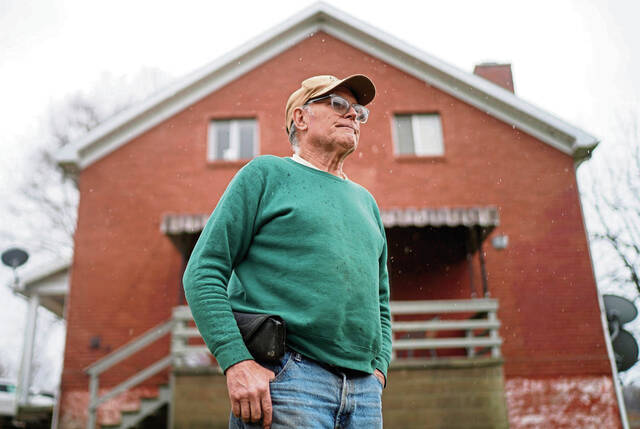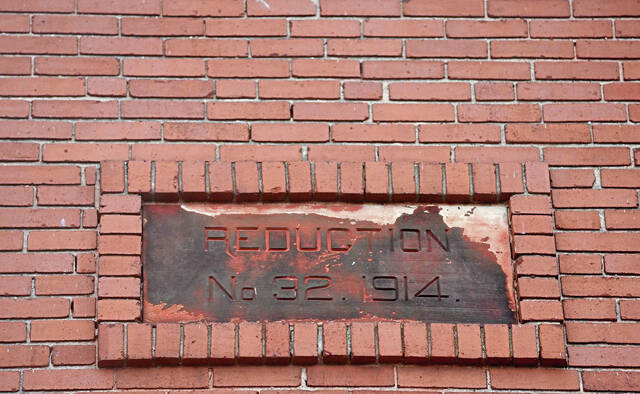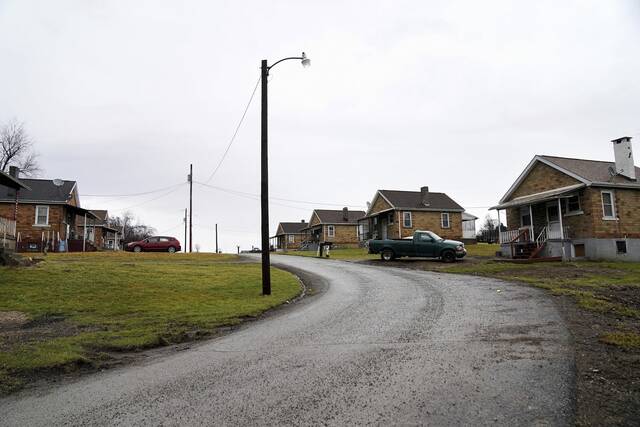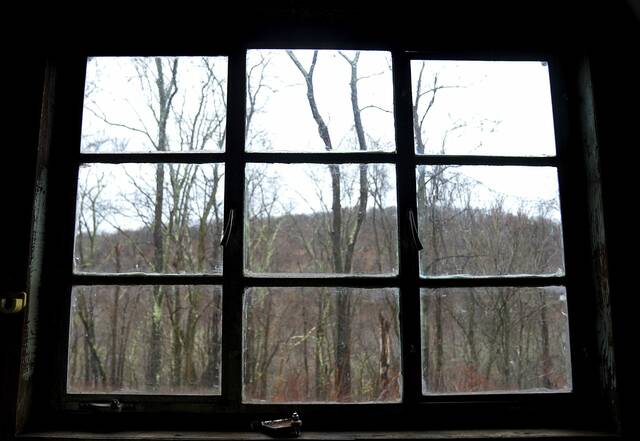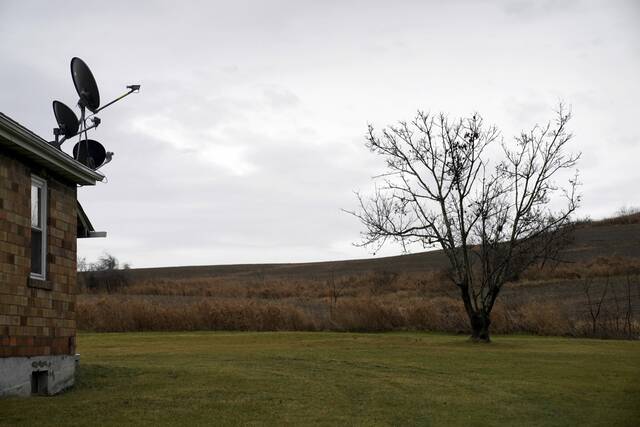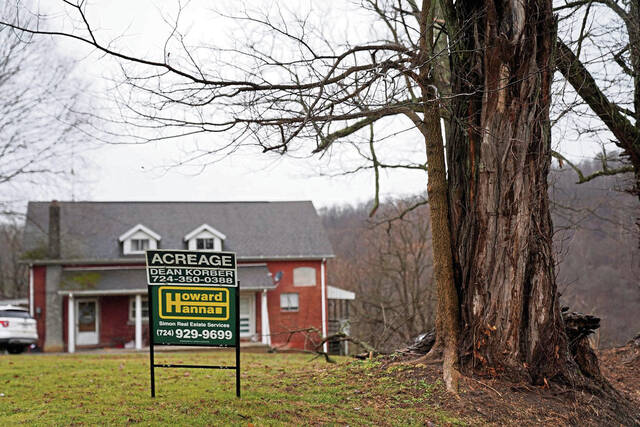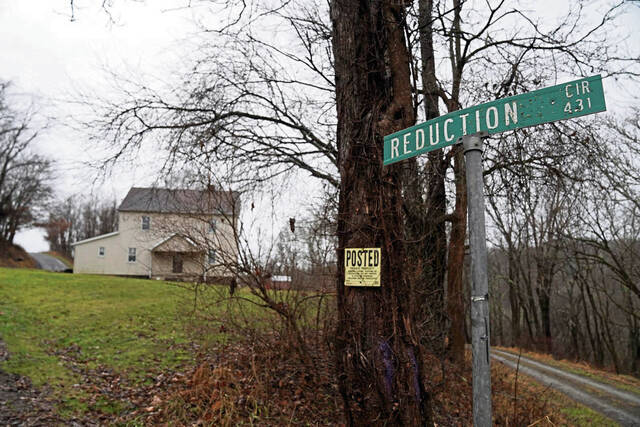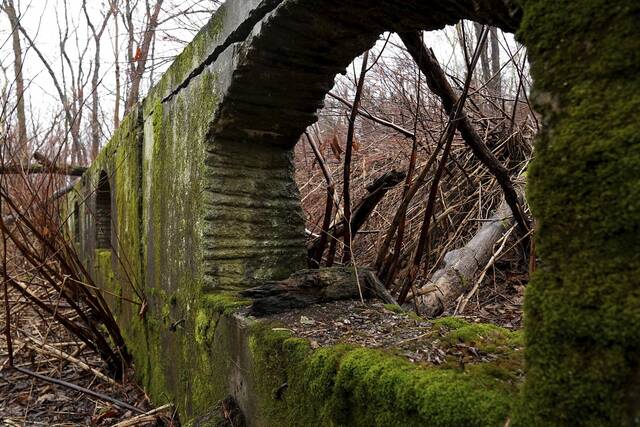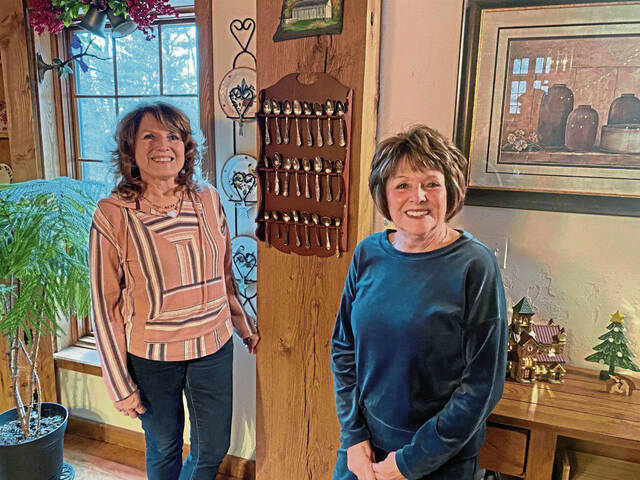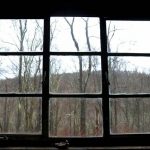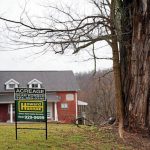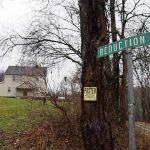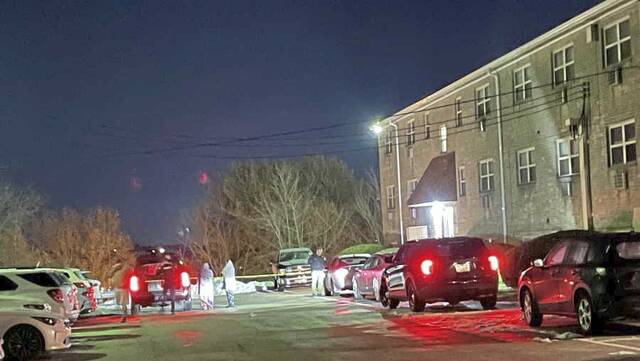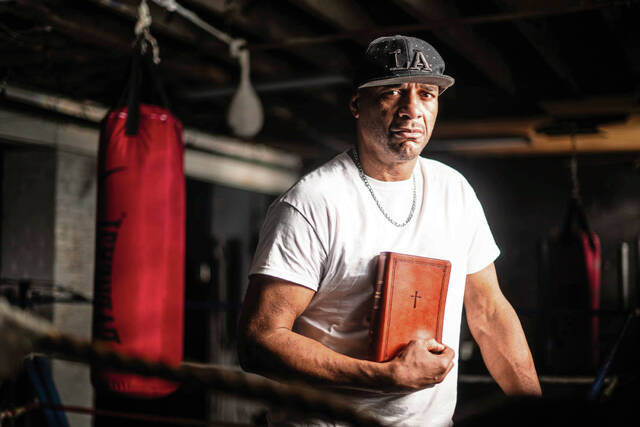The cost of buying Reduction — a little-known 76-acre South Huntingdon village where trainloads of Pittsburgh’s garbage was incinerated a century ago — has been reduced.
For a bargain price of $999,900, about $500,000 less than the initial asking price six years ago, you can own the cluster of 19 rental houses — mostly yellow brick and block cottages — and a 1914 South Huntingdon schoolhouse converted into a duplex and an A-frame house. The village, along the Youghiogheny River about 2 miles from the Smithton exit of Interstate 70, derives its name from the trash-burning American Reduction Co., which had its plant there.
The owners, David Stawovy of Scottdale, the village caretaker, and his siblings — Jacqueline Janos, 72, of Rostraver; Cheryl Albig, 68, of West Newton; and Jan Stawovy, 61, of Hempfield — recently dropped the asking price after they failed to reach an agreement on previous offers.
“I’m not going to let it go for nothing,” said David Stawovy, 73, the executor of the estate of their parents, John and Amelia Stawovy. The land that has been in the family since his parents bought it in 1948 from a Pittsburgh couple, according to the Westmoreland County Recorder of Deeds.
The property was listed initially at about $990,000, then raised to $1.5 million, the sisters said.
A buyer would get income from the modest rental properties, about 15 of which were built close to a century ago to house the workers of American Reduction Co.
The property has attracted multiple offers from prospective buyers, said Dean Korber, the Realtor handling the sale for Howard Hanna Real Estate Services at its Rostraver office. The parcel has the rental properties, outbuildings and about 50 acres of open ground and farmland, plus 25 acres of woods that lead down a hillside to the former Baltimore & Ohio Railroad tracks, where passengers once boarded the train at Reduction Station along the Youghiogheny River.
Complicating the sale of Reduction is the fact that David Stawovy and his three siblings each own 25% of the property and have to agree on a price. David Stawovy said he has not been contact with his brother, Jan, who is in the Westmoreland County Prison awaiting a possible trial on charges of illegal possession of a firearm.
The siblings had offers of $1.15 million and $850,000 cash but rejected them, Korber said.
Cheryl Albig said that their brother David has to agree to the sale price of the property, owned under the name of John and Amelia Development LLC, because he is the executor of their parents’ estate, even if the others want to accept it.
“We need it to be closed. It’s been going on too long,” she said.
They recently rejected an offer of $575,000 to buy the land, Janos said. David Stawovy said during a recent tour of the family estate that the offer came from someone who wanted it as a hunting preserve.
“There’s a lot of deer and wild turkey here,” Stawovy said.
But, if someone else is going to buy it for a hunting preserve, Stawovy said he would rather buy it for himself and his sons.
The two sisters said they hope that any new owners would not toss out the residents, several of whom have lived there for many years. Residents have expressed concerns about their future, Janos said.
“We would love to have the people continue to live there and not close it down and displace those people,” Albig said.
Among those who would be impacted by the sale of Reduction would be Chuck Lanham, who has lived in the village for 22 years.
”I raised my family (two daughters) here. I like it back here. It’s nice and quiet,” said Lanham, who was one of David Stawovy’s students when Stawovy taught industrial arts at Yough High School.
Reduction’s history
The history of the tiny village is tied to the city of Pittsburgh, when it was one of America’s steel centers at the turn of the 20th century.
A newspaper article on the closing of the plant — American Reduction sold the land in 1940 — said the company collected the garbage in Pittsburgh and moved it on railcars of the Baltimore & Ohio Railroad line to the company’s incinerator. The story pegged its beginnings to 1898.
“They would have 16 trainloads of garbage” each day and about 100 workers to sort through it, removing the metal and glass that could be recycled, Stawovy said.
All that remains of the incinerator is the remnants of the foundation of the plant, which was fueled by coal that Stawovy said was dug on the property.
One of the products from the recycling process was a “red oil,” a base for producing soap, according to the newspaper article. So much garbage was processed that about 30 tanker cars of grease was squeezed out of the trash each month.
In order to ensure that the company had a reliable workforce, American Reduction built 15 houses within walking distance of the plant.
Brian Albig, Cheryl’s husband, said his grandmother in West Newton would talk about the terrible odor drifting through the air when the garbage train would pass through the town.
“The stench of those railroad cars would make you tear up,” Bryan Albig recalled his grandmother saying.
That all changed when Pittsburgh opted to burn its garbage rather than send it to the country.
Family beginnings
John Stawovy wanted to buy one of the houses in Reduction to be near his family farm, but the owner offered him the entire village, which he bought.
The houses had well water that was pumped into the houses, with a spigot in the basement and one in the kitchen. “Washing up” meant filling up a bucket, not a bath tub, said Stawovy, who retired in 2004 as an industrial arts teacher at Yough Senior High School.
An outhouse in the backyard served as the toilet. Toilet paper, Stawovy recalled, was a page from the hefty Sears catalog of the day.
The village had a small market in one of the houses, but the Reduction residents could buy their meat, cheese and eggs from the Stawovy farm, Valentine’s Dairy, named after his grandfather.
David Stawovy recalls doing farm chores while his sisters delivered milk.
”We all helped out,” the sisters said.
The real estate listing for Reduction can be found at HowardHanna.com.


